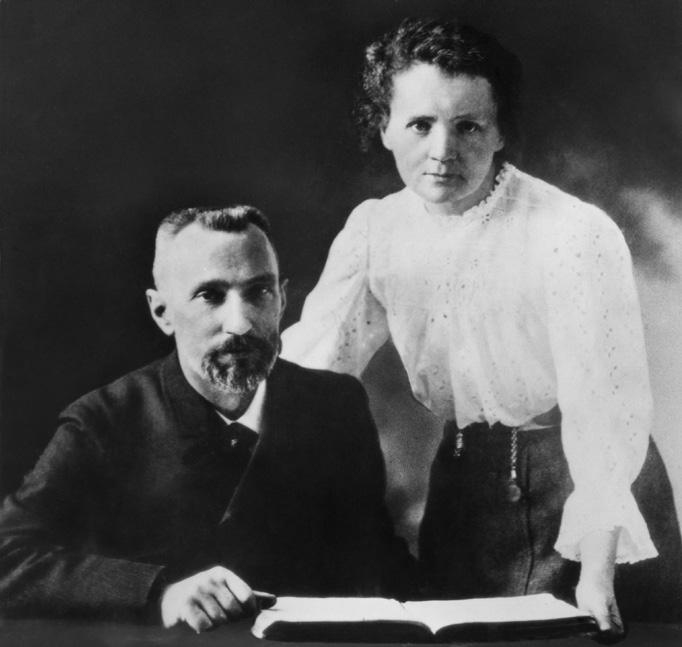Marie Curie
Marie Curie was born on November 7, 1867 in Warsaw, Poland. Her family had five children and her parents were both teachers. They loved poetry, books and learning and taught their children many things. Marie had a very loving family, but they weren’t always happy.
Their country was ruled by Russia. Marie’s family did not like the rules the Russian government made. It was against the law to speak Polish. It was against the law for girls to go to school, but Marie’s parents did not care. They sent Marie to a secret school.
Marie arrived in France in 1891. After three years she earned her degree in Physics. In 1894 Marie met Pierre Curie. Like Marie, he was a scientist and the two of them fell in love. They married a year later.
After the discovery of X-rays and their potential powers by Wilhelm Roentgen and Henri Becquerel, Marie decided that the importance of uranium (a chemical element) would be a good area to focus her research on. She began doing experiments in this field. Marie and her husband spent many hours in the science lab investigating pitchblende and the new element. They eventually figured out that there were two new elements in pitchblende. They had discovered two new elements for the periodic table! Marie named one of the elements polonium after her homeland Poland. She named the other radium because it gave off such strong rays. The Curies came up with the term “radioactivity” to describe elements that emitted strong rays.
In 1903, Marie and Pierre received the Nobel Prize in physics for their work in radiation. Marie became the first woman to win this prize. In 1911, Marie won another Nobel Prize, but this time in chemistry, for discovering two elements.
In 1921, Marie founded the Curie Institute in Paris, which operates as a major cancer research facility to this day.
Marie Curie died on July 4, 1934 from overexposure to radiation.

